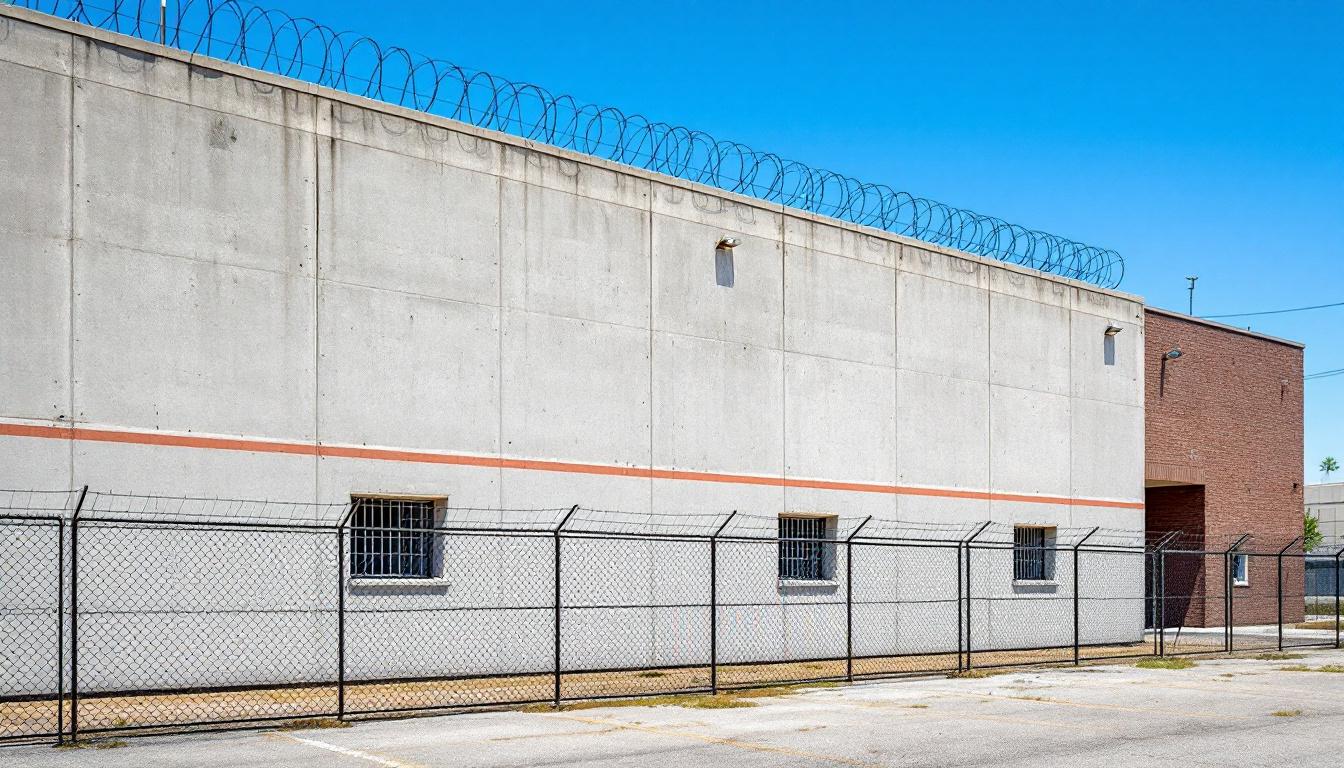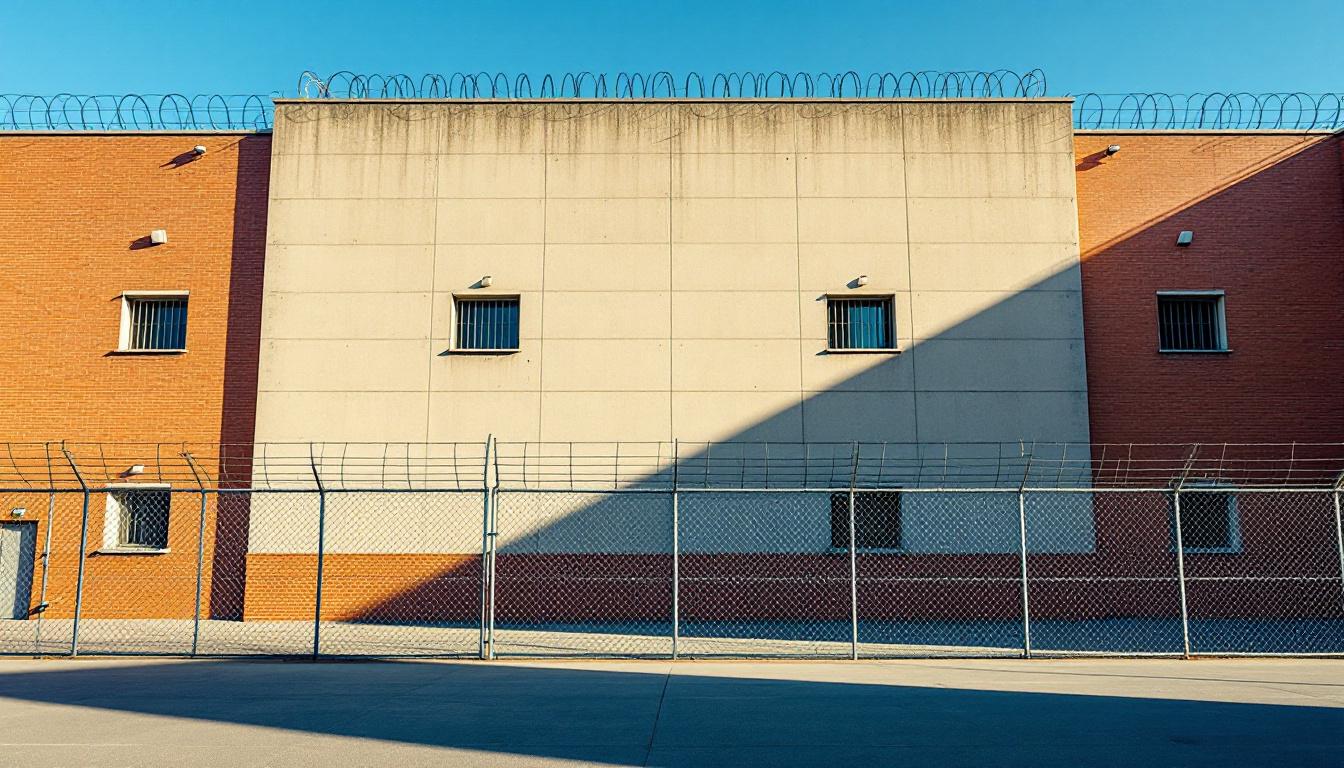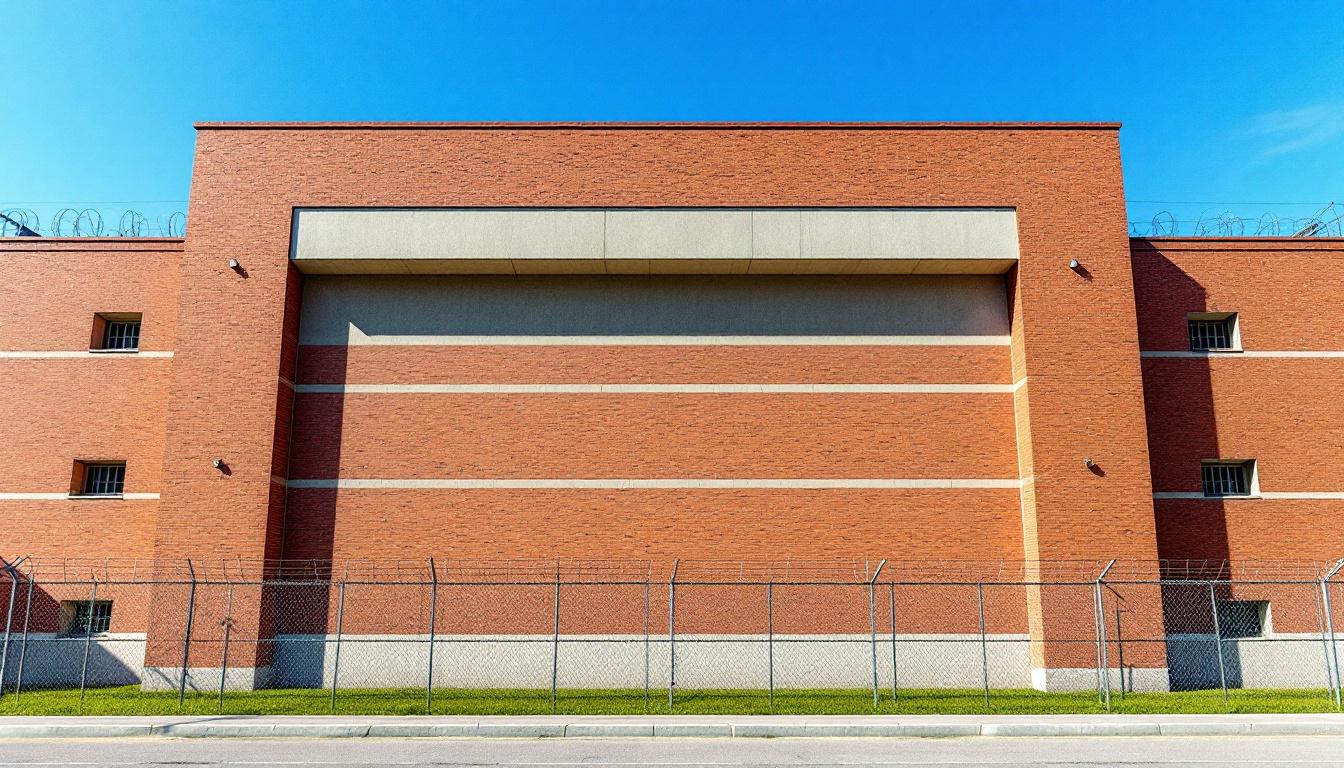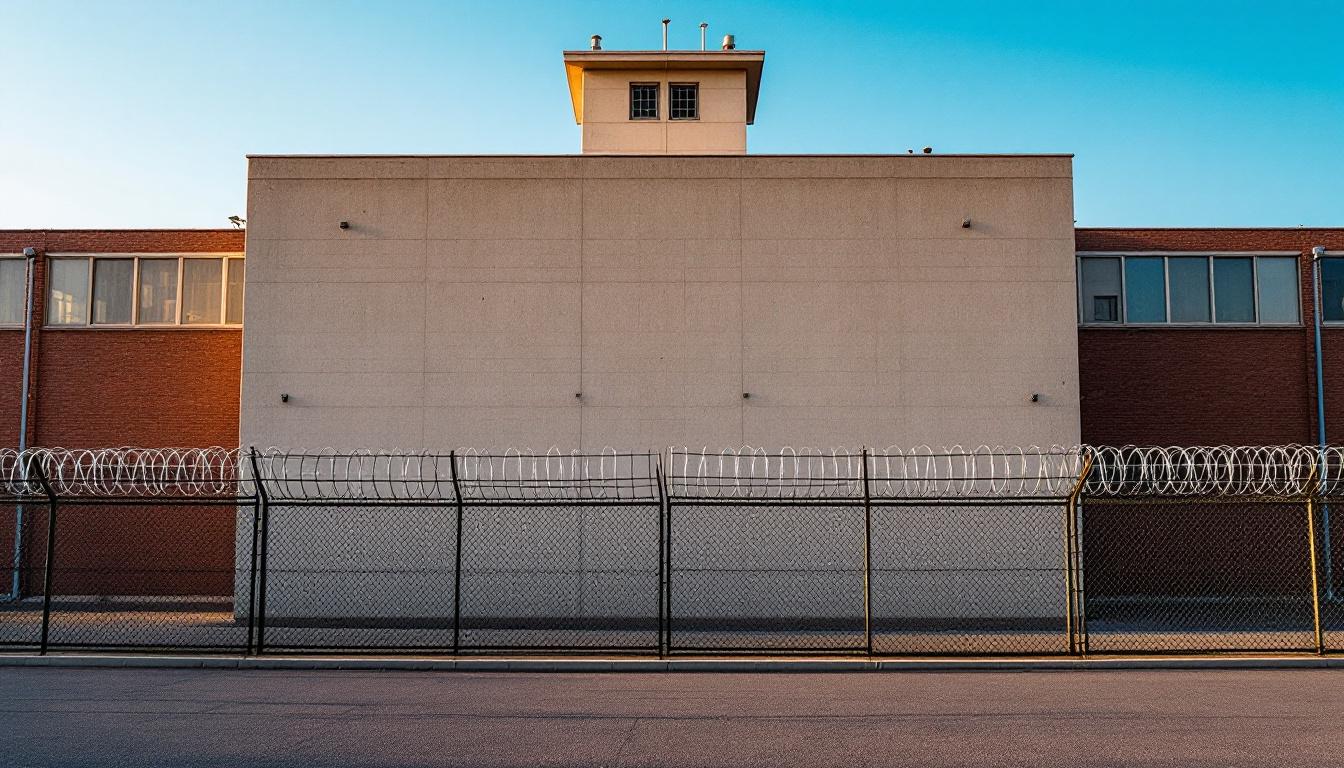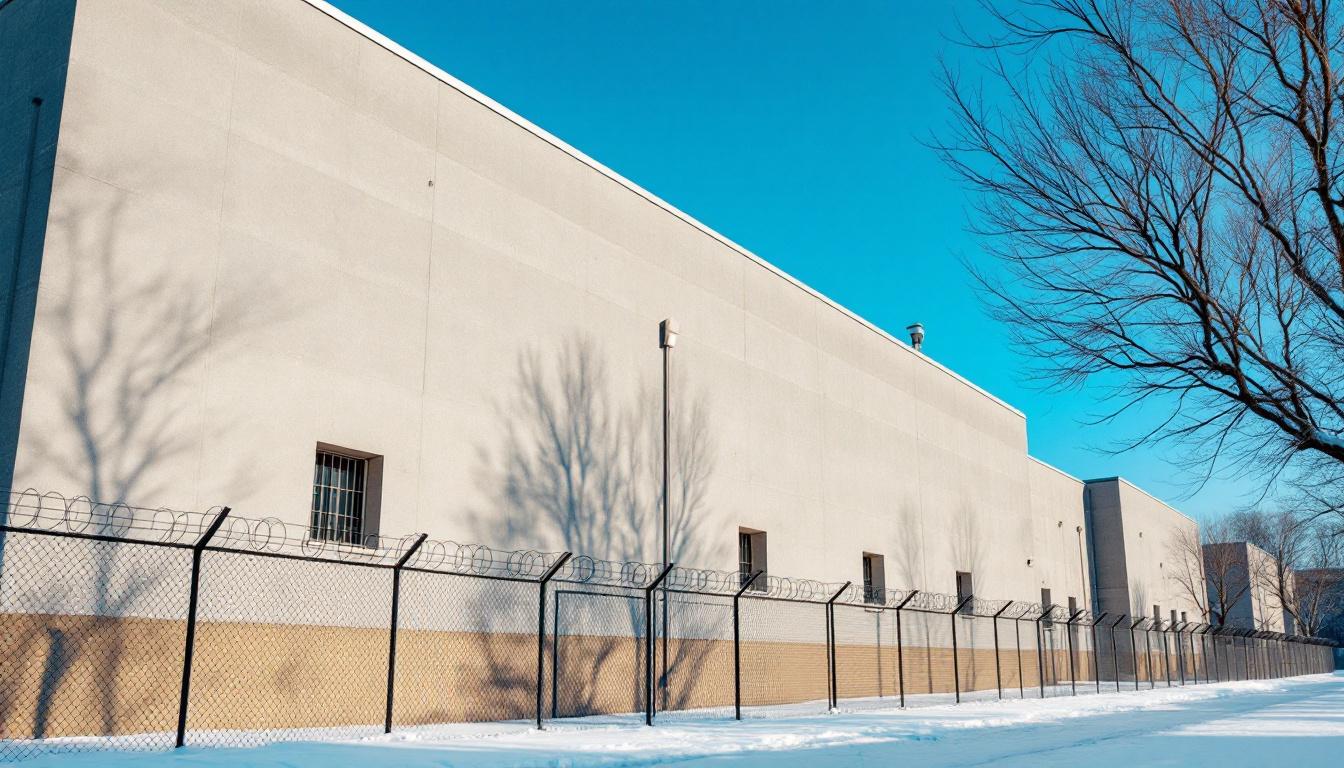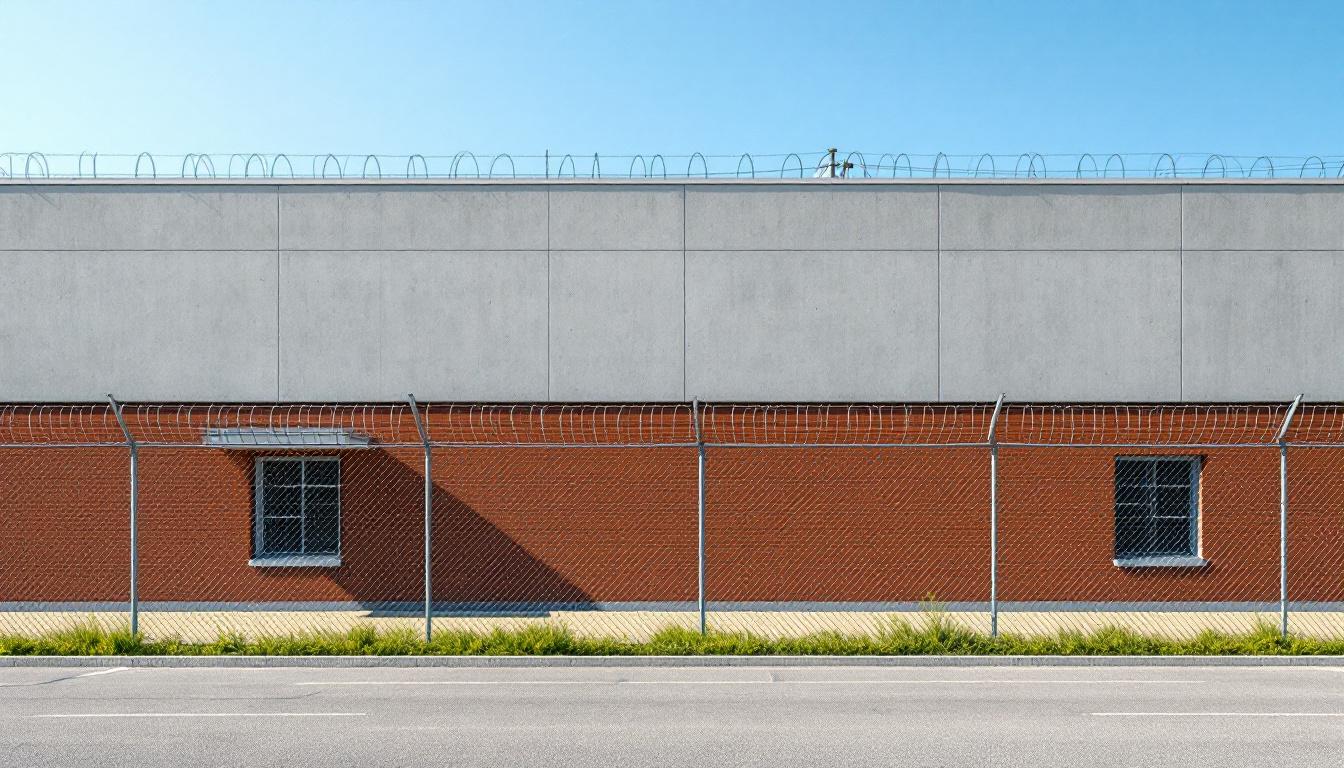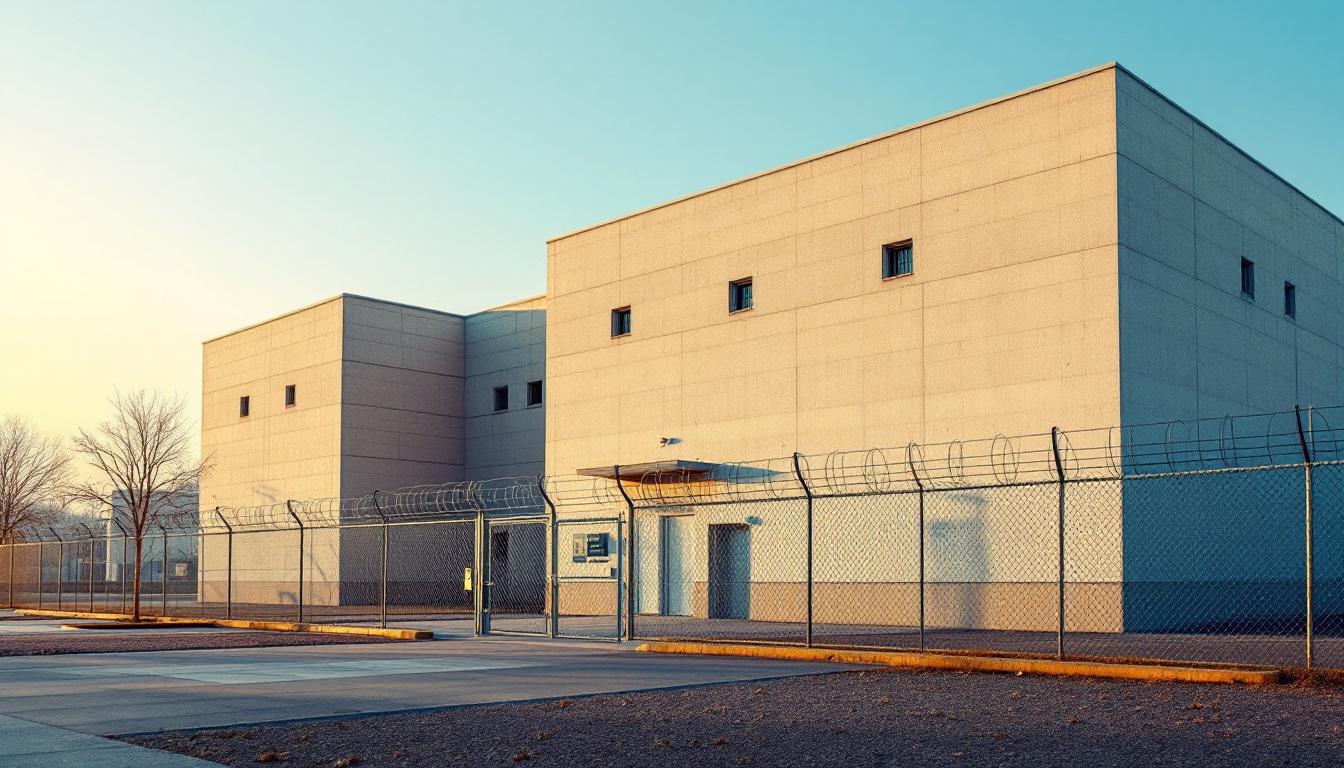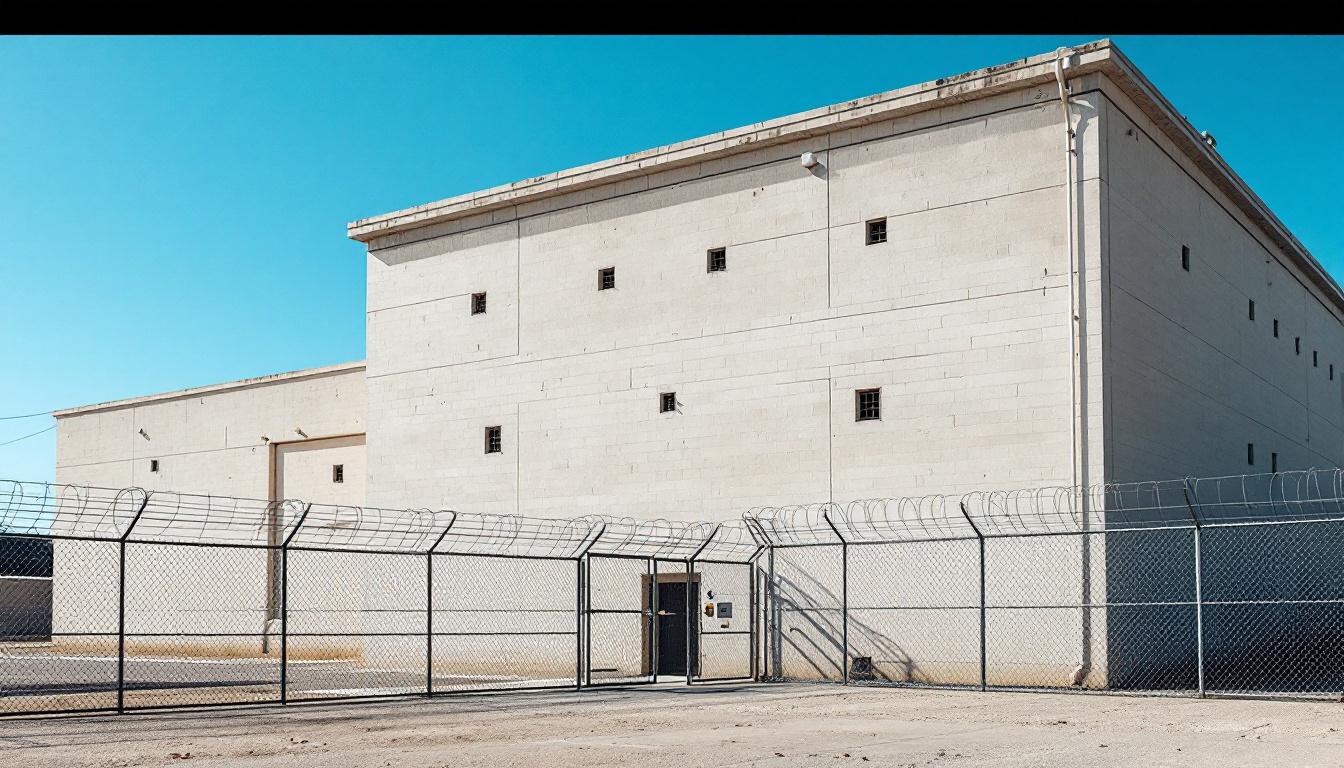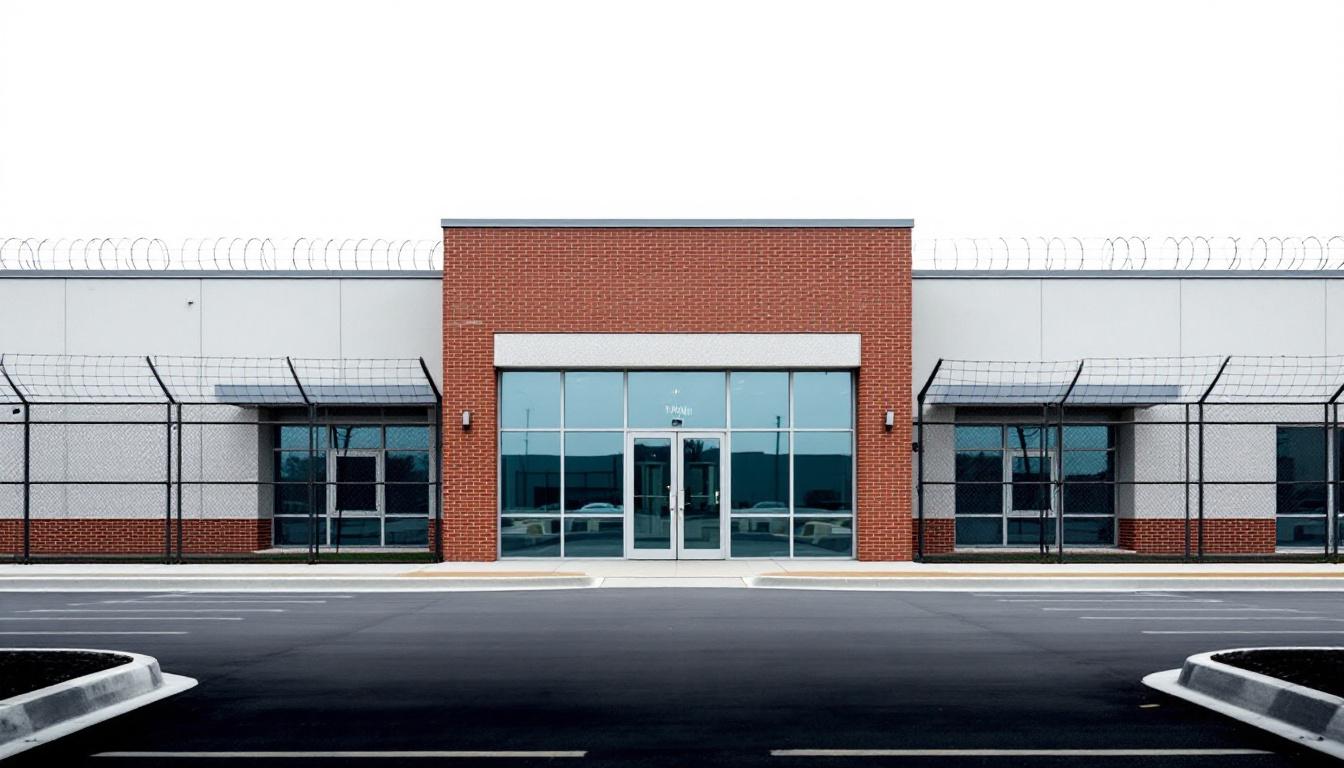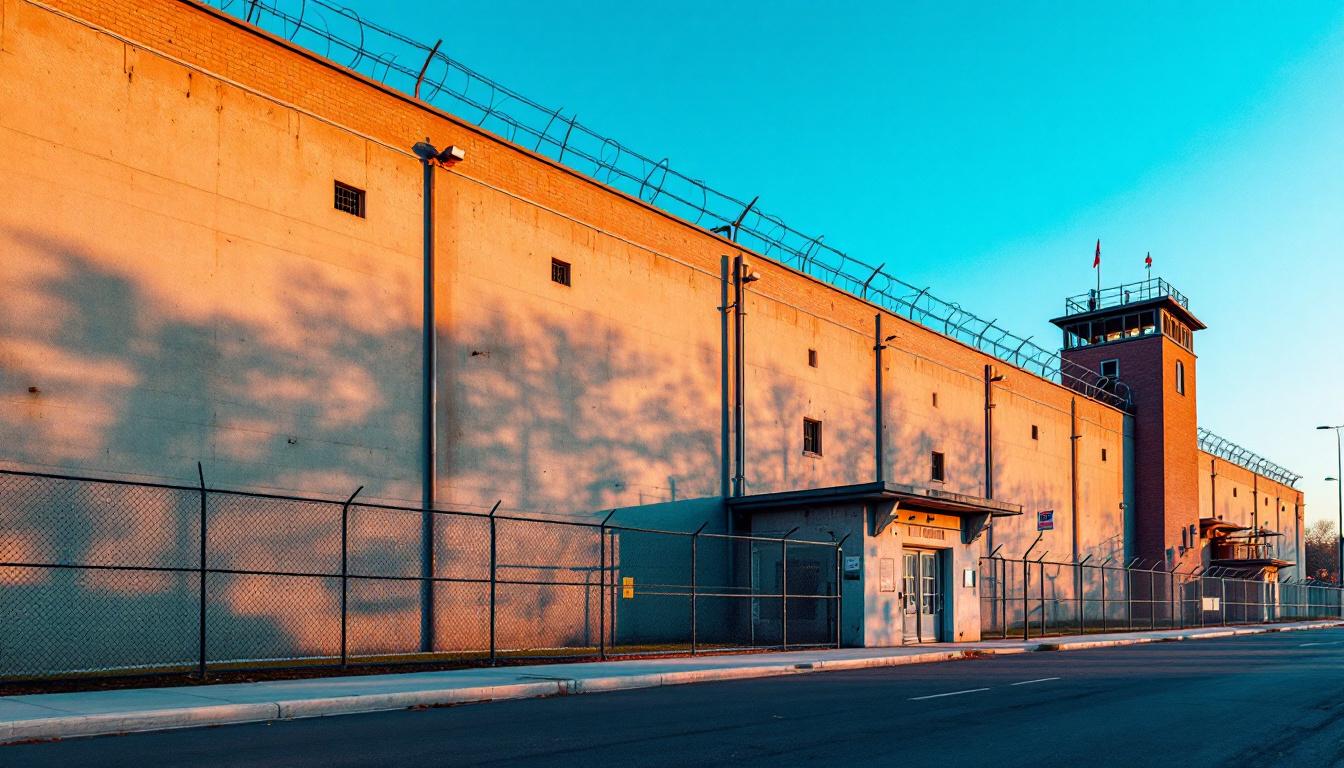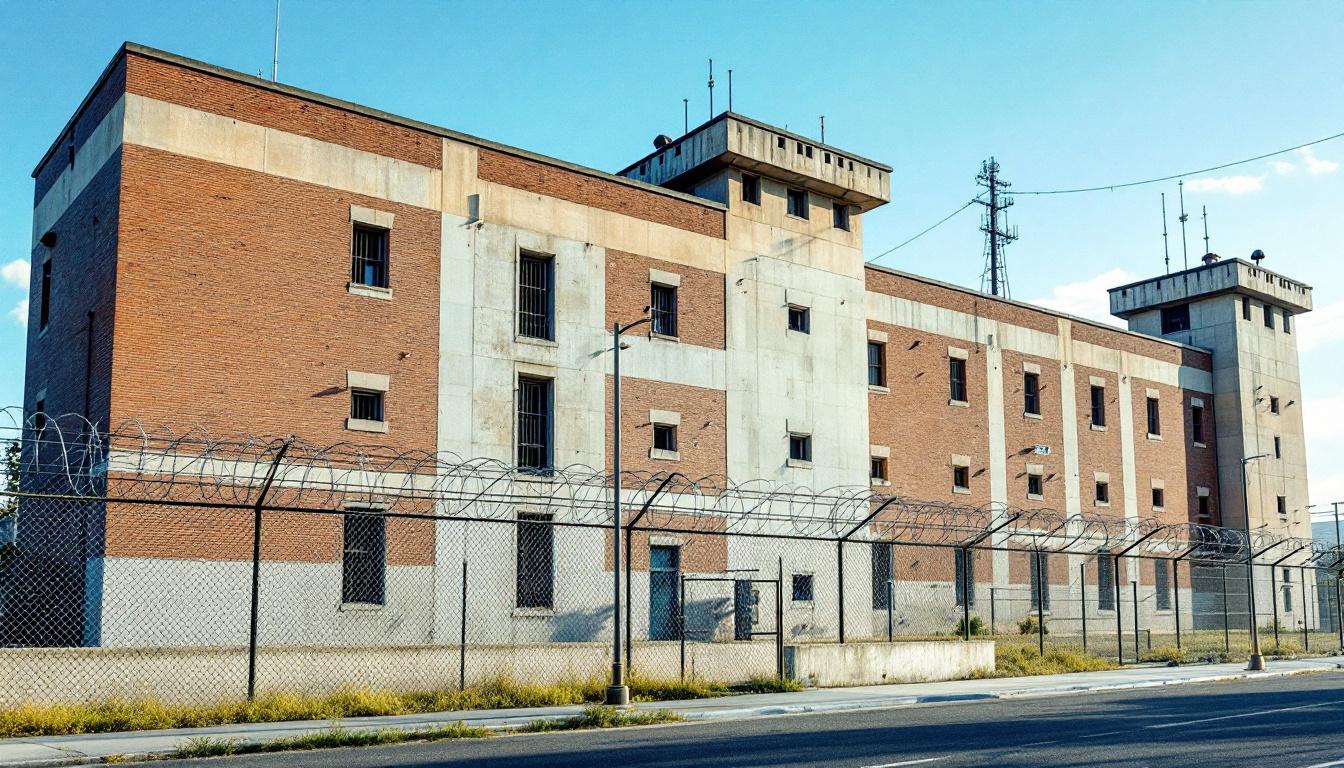
Quick Navigation
How to contact an inmate at FCI Pollock
This comprehensive guide will walk you through how to connect with an inmate at FCI Pollock. Follow the steps below to find an inmate and send letters and photos:
- Search for the inmate using our search tool below
- Create your account or log in to Penmate
- Write your message (up to 6,000 characters)
- Send instantly - inmates receive printed copies daily
Find an Inmate
Search for an inmate to start communicating today
Tip: You can search by first name, last name, or inmate ID number
To contact a person at FCI Pollock start by searching for the person on the official facility website. Perform a search by following these steps:
- Step 1: Enter their first name and last name into the search form and click "Search"
- Step 2: Locate their inmate record
- Step 3: Write down their Inmate ID and any housing information provided
Important! Be sure to enter the person's full name. Nicknames should not be used.
How to Send Messages to Inmates

You can use your phone or computer to send emails, letters, and photos to an inmate. Messages are sent electronically to inmate tablets or kiosks at the facility. If you would like to send a message, start by searching for an inmate at FCI Pollock.
Sending Photos and Postcards

A great way to send love and support to a loved one at FCI Pollock is to send photos and postcards. It only takes a few minutes to send photos from your phone and it makes a huge difference. You can also mail postcards with words of support and inspiration, or design your own postcard for special moments like birthdays and holidays.
Important! Be sure not to send any explicit photos or they may not be approved by the facility. You can also use a photo printing app like Penmate to make sure your photos are printed at the correct size (4x6 or 3x5) and are mailed according to the rules and regulations of FCI Pollock.
Frequently asked questions about FCI Pollock
-
How long does it take to deliver a message?
If you're sending an email message your letter is usually delivered within 24-48 hours. For messages sent via mail you should expect delivery within 3-7 days. All messages will need be approved by FCI Pollock.
-
How much does it cost to send a message to FCI Pollock?
You can send a message free using your phone or mail a message via USPS for the price of a $0.60 stamp and envelope. You can also purchase credits or e-stamps from services starting at $1.99.
-
What services can I use to contact an inmate at FCI Pollock?
Penmate
You can use Penmate to send letters and photos to an inmate from your phone. It's an easy way to stay in touch during your loved one's incarceration. Use the inmate locator to find an inmate's location and contact information, then you can send messages within a few minutes.
Securus messaging
Securus may be another option for communicating with an inmate at FCI Pollock. You can create a friends and family account and purchase credits to send messages. All messages will be reviewed and must be approved by the facility.
JPay
Some county jails and state prisons may support sending messages with JPay. You must register an account with the system, find your loved one, and purchase stamps to send messages. For some locations you can also attach photos.
Smart Jail Mail
You may also check if Smart Jail Mail is available at FCI Pollock. Smart Jail Mail is operated by Smart Communications and has contracted with some state and county jails. After purchasing credits, your messages and photos are sent to the facility, printed out, and then handed out to your loved one.
-
What is the mailing address of FCI Pollock?
Mailing address:
FCI Pollock
1000 Airbase Rd
Pollock, LA 71467
Phone: (318) 765-4400 -
What are the visiting hours at FCI Pollock?
Visiting hours at FCI Pollock vary by housing unit and security level. Generally, visits are scheduled on weekends and holidays, with some facilities offering weekday visits. Contact the facility directly at (318) 765-4400 or check their website for the current visiting schedule. Visits typically last 30-60 minutes and must be scheduled in advance.
-
What items are prohibited when sending mail to FCI Pollock?
Prohibited items typically include: cash, personal checks, stamps, stickers, glitter, glue, tape, staples, paperclips, polaroid photos, musical or blank greeting cards, hardcover books, magazines with staples, and any items containing metal or electronics. Only send letters on plain white paper with blue or black ink. Photos must be printed on regular photo paper (no Polaroids). Always check with FCI Pollock for their specific mail policies.
-
How do I send money to an inmate at FCI Pollock?
You can send money to an inmate at FCI Pollock through several methods: 1) Online using JPay, Access Corrections, or the facility's approved vendor, 2) Money orders mailed directly to the facility with the inmate's name and ID number, 3) Kiosks located in the facility lobby, or 4) Over the phone using a credit or debit card. Fees vary by method, typically ranging from $2.95 to $11.95 per transaction.
-
Can I schedule a video visit with an inmate at FCI Pollock?
Many facilities now offer video visitation as an alternative to in-person visits. At FCI Pollock, video visits may be available through services like Penmate, Securus Video Connect, GTL, or ICSolutions. Video visits typically cost $10-20 for 20-30 minutes and must be scheduled in advance. You'll need a computer or smartphone with a camera and reliable internet connection. Contact the facility for their specific video visitation policies and approved vendors.
-
What identification do I need to visit an inmate at FCI Pollock?
All visitors must present valid government-issued photo identification such as a driver's license, state ID, passport, or military ID. Minors must be accompanied by a parent or legal guardian who can provide the minor's birth certificate. Some facilities require visitors to be on the inmate's approved visitation list, which may require a background check. Contact FCI Pollock for specific ID requirements and visitor approval procedures.
-
How can I find out an inmate's release date?
To find an inmate's release date at FCI Pollock, you can: 1) Use the online inmate search tool if available, 2) Call the facility's records department, 3) Contact the inmate's case manager or counselor, or 4) Have the inmate provide this information during a call or visit. For privacy reasons, some facilities only release this information to immediate family members.
Facility Overview
Official Website

About FCI Pollock
Federal correctional facilities serve as integral components of the justice system's rehabilitation framework, designed to prepare individuals for successful reentry into their communities. FCI Pollock, LA operates within this mission while serving the broader correctional needs of the region, including areas of Mississippi where community connections often span state boundaries. Located in Pollock, this MS correctional facility typically emphasizes programs that align with federal standards for inmate preparation and community reintegration, recognizing that effective corrections outcomes depend heavily on maintaining family bonds and developing practical skills for post-release success.
The facility's approach to the population services generally centers on evidence-based programming that addresses both immediate institutional needs and long-term community safety goals. Educational opportunities, vocational training, and behavioral intervention programs may be available to help individuals develop the tools necessary for productive citizenship upon release. These initiatives often reflect broader state correctional goals of reducing recidivism while supporting family stability throughout the incarceration period. The correctional facility typically maintains visiting programs and communication systems designed to preserve crucial family relationships that research consistently shows improve rehabilitation outcomes.
Within the context of the South's correctional landscape, facilities like this one often serve diverse populations from across state lines, making community integration efforts particularly complex yet vital. The rehabilitation focus generally extends beyond individual programming to include preparation for the specific challenges individuals may face when returning to communities throughout Louisiana, Mississippi, and neighboring states, where economic opportunities and support systems vary significantly across rural and urban environments.
Programs & Services
Support for personal growth and successful reintegration forms the foundation of comprehensive programming designed to address the diverse needs of the population. The facility's approach emphasizes building essential life skills while fostering personal responsibility and community connections. Through carefully structured initiatives, participants gain access to resources that may supply both immediate assistance and long-term preparation for their eventual return to society.
Educational services typically include basic literacy programs that help individuals develop fundamental reading and writing skills necessary for further advancement. The facility often provides vocational training opportunities, with welding programs offering hands-on experience in a high-demand trade skill. These educational and vocational programs work together to create pathways for meaningful employment, giving participants practical tools they can use to support themselves and their families upon release.
Moreover, support services extend beyond traditional classroom learning to encompass faith-based initiatives that may supply spiritual guidance and community connection. Vocational programs in areas such as painting and decorating provide additional skill-building opportunities while allowing creative expression. These diverse offerings typically work in coordination to address the whole person, recognizing that successful reintegration requires not only job skills but also emotional support, personal development, and strong community ties that can sustain positive change.
Daily Life & Visitation
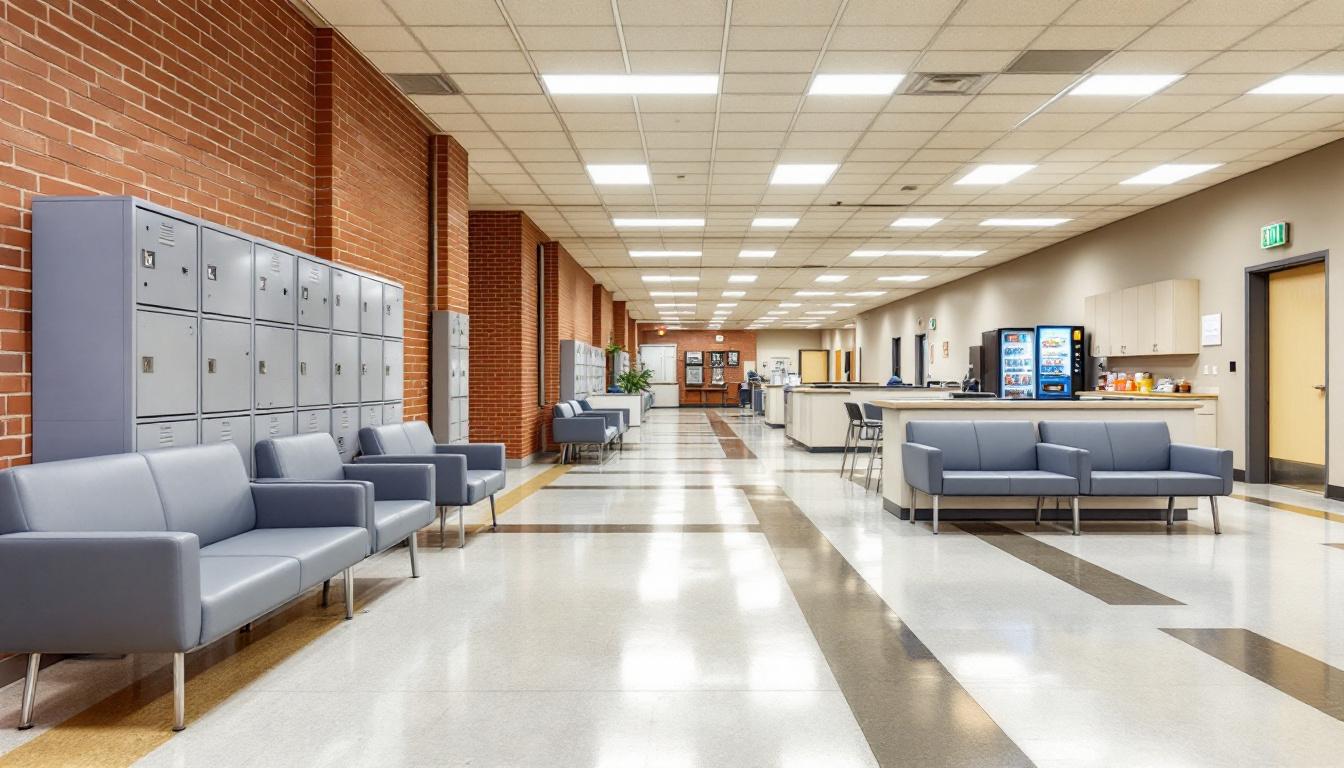
Systematic organization forms the backbone of how the population navigates their daily experience at FCI Pollock. The facility operates on structured schedules that now govern movement between housing units, work assignments, and programming activities. Residents regularly participate in controlled counts throughout the day, with designated times for meals, recreation, and various institutional responsibilities that supply predictability to their routine.
Housing arrangements typically place the population in dormitory-style units or cells, depending on their security classification and available space. Each resident generally receives basic furnishings and may store approved personal items within established limits. The commissary system allows individuals to purchase additional food items, hygiene products, and other permitted goods using funds from their institutional accounts. Meals are usually served in centralized dining areas according to housing unit schedules, with the population moving in organized groups under staff supervision.
Moreover, recreational opportunities often include access to outdoor exercise areas, indoor fitness equipment, and organized sports activities when staffing and security conditions permit. Work assignments may range from food service and maintenance duties to clerical positions within the facility, providing structure and potential skill development. Whereas movement throughout the facility requires approval and escort procedures, the population typically maintains contact with family members through scheduled visitation sessions, telephone calls, and correspondence systems that help preserve important relationships during their incarceration.
Ready to Connect?
Start communicating with your loved one today
Search for an Inmate
